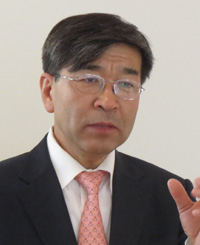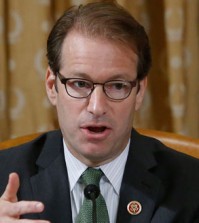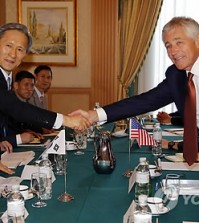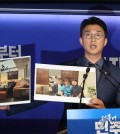- California Assembly OKs highest minimum wage in nation
- S. Korea unveils first graphic cigarette warnings
- US joins with South Korea, Japan in bid to deter North Korea
- LPGA golfer Chun In-gee finally back in action
- S. Korea won’t be top seed in final World Cup qualification round
- US men’s soccer misses 2nd straight Olympics
- US back on track in qualifying with 4-0 win over Guatemala
- High-intensity workout injuries spawn cottage industry
- CDC expands range of Zika mosquitoes into parts of Northeast
- Who knew? ‘The Walking Dead’ is helping families connect
Activist devoted to boosting Korean-Americans’ rights
By Jun Ji-hye
Kim Dong-suk, founder of Korean American Civic Empowerment (KACE), believes that Korean-Americans should exercise their right to vote in the United States, as they are powerful enough to influence American society.
“If Koreans living in the U.S. want to be treated fairly, they should be aware of their rights as voters,” said Kim, now a steering committee chairman of KACE, in an interview.
He said that when he founded the organization in 1993 with four colleagues, the turnout of Korean voters was less than 5 percent.
“Those who do not speak fluent English found it difficult to register as a voter,” he said. “So, I began helping them draw up relevant documents by visiting Korean restaurants.”
10 years after the foundation of KACE, 54,000 registered Korean-Americans voters are members and turnout has increased to 40 percent, Kim said.
The number is powerful enough to have some impact in elections and sometimes plays a decisive role in close races.
“Becoming aware of the power of Korean voters, American politicians began advertising in media operated by Koreans to appeal for support,” he said.
Based on this philosophy, Kim also has devoted himself to informing U.S. society to the plight of Korean sex slaves under imperial Japan during World War II.
“Rallies and protests contribute little to persuading U.S. society,” he said. “The power of Korean voters, objective data regarding the issue and vivid testimony from surviving former sex slaves can together move society.”
In 2006, he visited U.S. representative Mike Honda, a man of Japanese ancestry, who has criticized Japan’s past wrongdoings, to ask him to table a House resolution condemning Japan for the sexual slavery.
Kim and Honda, together with many Korean-American students, collected 80,000 signatures and delivered the petition to other representatives. Honda led the passage of a 2007 House resolution.
The KACE founder also was a leader in erecting a Comfort Women Memorial in New Jersey in 2010. It was the first ever memorial set up outside Korea.
From last year, KACE has been operating the East Asia History Internship Program to disseminate stories of sex slaves to American society.
“Every semester, we select 10 students among applicants at the City College of New York and give them an opportunity to talk to surviving sex slaves through video telephony,” said Kim. “Among them, most are foreign students. One or two are Koreans.”
Kim, who left for the U.S. in 1985, visited his home country last week to give lectures to students in Chunchon High School, Incheon Foreign Language High School and Yonsei University.
“I talked about how powerful the unity of Korean-Americans is and what part they play in Washington politics,” he said.
















